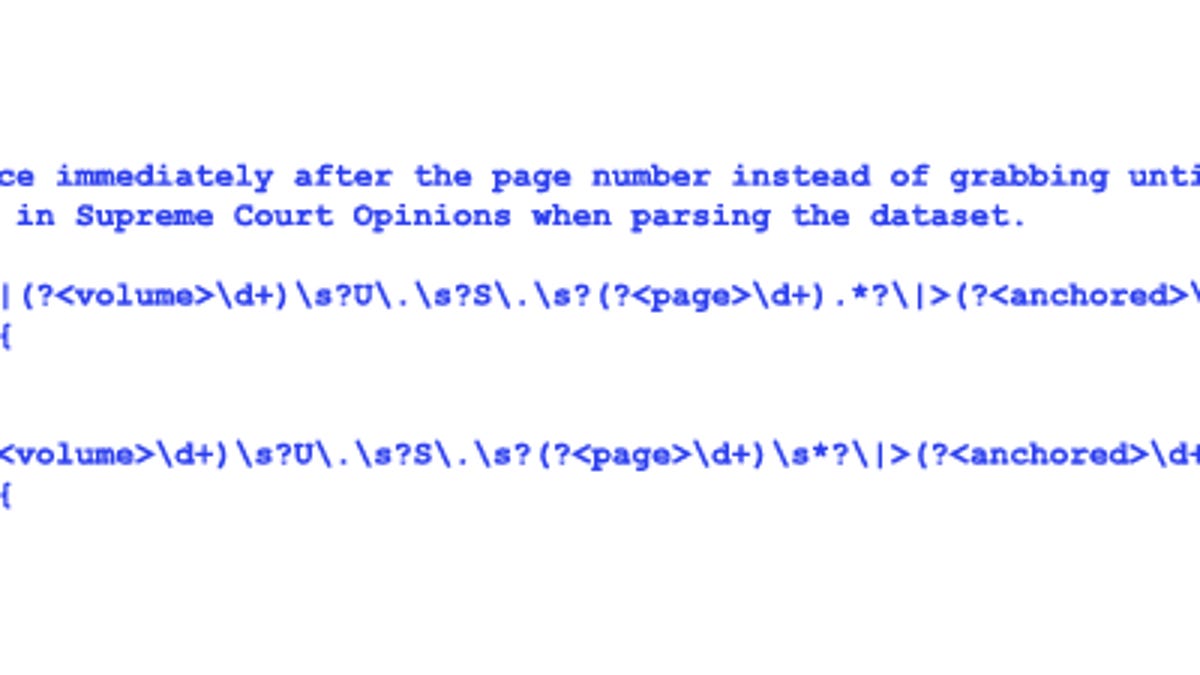Was legal site rewrite a liberal plot? Not quite.
Conservative attorney accuses legal startup of concealing U.S. Supreme Court case relating to President Obama's eligibility for office. Turns out it's a programming error.
A few days ago, a conservative attorney named Leo Donofrio noticed something extremely odd about the U.S. Supreme Court opinions published on the Web site of Justia.com, a legal information startup.
The opinions weren't accurate. Donofrio, of East Brunswick, N.J., discovered that citations to a 1875 case defining a "natural-born citizen"--a phrase that has special resonance in discussions about President Obama's eligibility for the office--had been quietly removed before the 2008 elections.
Donofrio, who in 2009 tried to convince the Supreme Court that President-elect Obama was ineligible for office, quickly published his suspicions in a blog post last Thursday that labeled the alterations a "sabotage of U.S. law" and a "very serious moment in our national history." WorldNetDaily concluded that the opinions were intentionally "scrubbed," and an article on Examiner.com warned that the culprit wanted to prevent the opinions from "being found by Internet researchers."
There's just one problem with the flurry of speculation: it doesn't appear to be true. Justia's chief executive, Tim Stanley, told CNET today that some citations were mangled because of a programmer's error, not an effort to rewrite history.
"This has nothing to do with President Obama and it is not a conspiracy," Stanley said. "When we discovered the issue, we corrected the script and the cases now render correctly. The issue was not limited to the cases these folks are focused on. We've had internal discussions on how to make sure this does not happen in the future with additional visual and parsing checks."
It turns out, according to Mountain View, Calif.-based Justia, that the blame can be laid on a poorly-crafted regular expression. In computer science terms, regular expressions (often abbreviated as "regex") are used for complicated forms of text matching and substitution. They rank among the highest forms of programming arcana, primarily because of their flexibility, but are also some of the most prone to bugs.
In this case, Stanley said, what happened is that Justia's programmers typed in ".*" (which matches any character) when creating a regex. It's now an "\s" (which matches only spaces).
Stanley said he wasn't sure how many cases were affected before the bug was discovered and fixed. "It was just the U.S. Supreme Court cases, not the state, federal appellate and district court cases," he said.
It wasn't clear whether Donofrio, the attorney in New Jersey, had contacted Justia before leveling his accusations. Donofrio did not respond to an e-mail query from CNET.
"Natural born citizen"
The case in question, which Donofrio noticed had been removed from some citations, is Minor v. Happersett. In it, the Supreme Court pondered what it meant to be a "natural-born citizen"--a phrase that the U.S. Constitution uses when specifying: "No person except a natural born citizen, or a Citizen of the United States, at the time of the Adoption of this Constitution, shall be eligible to the Office of President."
In Minor v. Happersett, the justices unanimously ruled in 1875 that:
The Constitution does not, in words, say who shall be natural-born citizens. Resort must be had elsewhere to ascertain that. At common-law, with the nomenclature of which the framers of the Constitution were familiar, it was never doubted that all children born in a country of parents who were its citizens became themselves, upon their birth, citizens also. These were natives, or natural-born citizens, as distinguished from aliens or foreigners.
That language, Donofrio argues, would mean that neither Obama nor his GOP rival in 2008, John McCain, qualified to become president. That's because that while the court implied that both parents must be U.S. citizens, Barack Obama Sr. was from Kenya. McCain, by this standard, would also be ineligible because he was born in Panama.
Making the "Justiagate" story more attractive--it's now popped up on at least scores of political blogs and was WorldNetDaily's top story today--was that Justia decided to remove some of its Web pages from the Internet Archive.
Stanley, Justia's chief executive, said that was "because they have errors in them, not to cover up this issue." But Donofrio said in an update to his blog post this morning that: "This activity operates as an admission by Justia. A criminal investigation is required."


